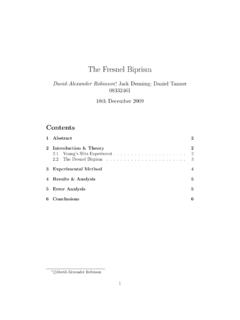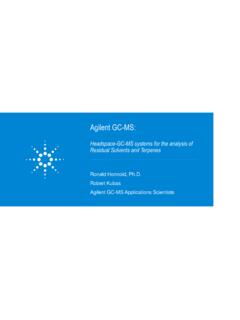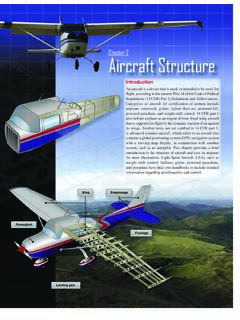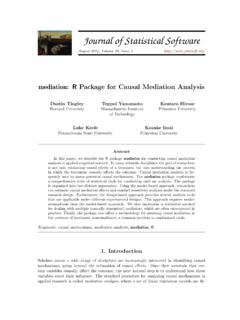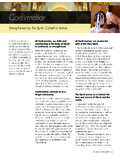Transcription of Family, Peer and School Influence on Children's Social ...
1 World Journal of Education Vol. 6, No. 2; 2016 Published by Sciedu Press 42 ISSN 1925-0746 E-ISSN 1925-0754 Family, Peer and School Influence on Children's Social Development Ines Bla evi 1,* 1 Education and Teacher Training Agency, Croatia *Correspondence: Education and Teacher Training Agency, Tolstojeva 32, 21000 Split, Croatia. Tel: 385-91-1570-236. E mail: Received: February 8, 2016 Accepted: March 10, 2016 Online Published: March 28, 2016 URL: Abstract Theory of origins of the paper starts from holistic and humanistic approach to upbringing and education, which has a goal of comprehensive development of student.
2 An integral children s development can be encouraged by thoughtful planning of School activities in the School curriculum. Co-creators of the School curriculum (teachers, students and parents) need to create different School activities that will give a chance to the students to express their knowledge, skills and capabilities, and to develop socially as well. In the period of middle childhood there is a special importance is of the Social development because the first friendships are made than, strengthens the Influence of the School at the Social development, and the Influence of the family is still present there.
3 In order to understand better the children s Social development the paper will display the theories of Social development and the research results of the influences on Social development of the student. Understanding of the family, School and peer influences on the Social development of the student is of an extreme importance as a starting point for creating School activities that would encourage not only Social but also integral development of the students. Keywords: family; School ; peer; School curriculum; Children's Social development 1.
4 Introduction The role of the School is to stimulate student s integral development within three domains of knowledge: affective, cognitive and psychomotor. It is expected from the teachers to equally stimulate all student s capabilities (Mijatovi , 1999) and to observe the student as a human and Social being (Previ i , 1999). In accordance with the above, more and more classes are being affirmed that are oriented to the child (Walsh, 1997) as well as pro- Social classes ( udina-Obradovi , Te ak, 1995) that encourage Social learning as a part of overall learning.
5 Children's Social development, which represents the development of capabilities of understanding Social relations and suitable psychosocial functioning, includes behaviour, attitudes and affects united into Children's interaction with adults and peers (Braj a- ganec, 2003). Numerous researches that were involved into Children's Social development indicate to positive Influence of teachers, parents and peers on the Social development of the students ( or evi , 1981, Allen, Weissberg & Hawkins, 1989, Lackovi -Grgin, 1990; Ladd, 1999.)
6 Buljuba i -Kuzmanovi , 2008, Buljuba i -Kuzmanovi & Livazovi , 2010) emphasising how socially developed child acquires good developing results that enable satisfying and competent participation in the community that they belong to (Katz & McClellan, 1997, Raver & Zigler, 1997; Rose-Krasnor, 1997; according to Braj a ganec, 2003). Katz and McClellan (1997) emphasise that the community is the basis for creation of a context of Social development, and the communities could be families, School and peer groups.
7 In the period of middle childhood, the Influence of family, teachers and peers is of an extreme importance (Vizek-Vidovi , 2003). The results showed that the children that created a relationship of trust with teachers are more socially competent in the relationships with the peers (Klarin, 2006), and it is especially emphasised the importance of emotional literacy of parents on Social development of the students and the quality of adjustment (Buljuba i -Kuzmanovi , 2007). The School has a role to prepare the student for the future profession, but also to work in the community (Rychen & Salgnik, 2003; ten Dam & Volman, 2007).
8 The teachers need to have an educative effect, encourage students to work in groups, and to base their classes on interaction, partnership and cooperation (Buljuba i -Kuzmanovi , 2012). The School as the community of upbringing into the centre of the World Journal of Education Vol. 6, No. 2; 2016 Published by Sciedu Press 43 ISSN 1925-0746 E-ISSN 1925-0754 educational process sets the students and their integral development, and to the Social development, as a significant factor of growing up and success, attaches a special attention (Buljuba i -Kuzmanovi , 2012).
9 In order to contribute to better student s Social development, the teachers need to know theories of Social development well. Knowing the theories of the Social development, they can create, with more quality, the School activities that will stimulate children s Social development, as well as the integral development in general. 2. Theoretical Views of the Children s Social Development When we analyse children s Social development and the Influence of the family, peer and School on them it is important to know the basics of the theory of the Social development.
10 Some of the theories emphasise the importance of the family for the student s Social development, while the others emphasise the Influence of the child s Social environment. The theory of commitment of the theorist John Bowbly emphasises the importance of early relationship with parents (guardians) in child's development and great Influence on Social relationships in the whole life (Bowbly, 1969). Ainsworth, Blehar, Waters & Wall (1978) discovered that children that are tightly connected to their mothers as babies have a tendency to develop stronger self-respect and better self-confidence, to be independent, better in School , have successful Social relationships and experience less depression and anxiety.










